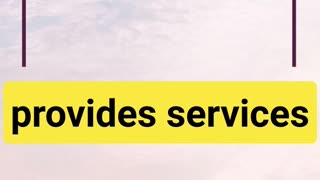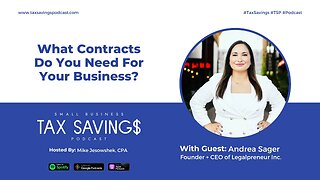#36 Govermt Contracts
Selling goods or services to the government involves a specific process that is designed to ensure transparency, fairness, and competition. The exact steps can vary depending on the country and the specific government agency you're dealing with, but here is a general overview of the typical process:
Market Research: Before pursuing a government contract, conduct thorough market research to understand the government's needs, priorities, and existing suppliers. This will help you identify opportunities and tailor your offerings to meet government requirements.
Register and Obtain Necessary Documents: Depending on your country, you might need to register as a government contractor and obtain certain certifications, licenses, or permits. This could include a DUNS number, tax identification numbers, and any relevant industry certifications.
Identify Opportunities: Governments often advertise their procurement needs on official platforms. Monitor government procurement portals, websites, and newspapers for requests for proposals (RFPs), requests for quotes (RFQs), and invitations to bid (ITBs) related to your industry.
Review Solicitation: When you find an opportunity that matches your offerings, carefully review the solicitation documents. These documents outline the requirements, evaluation criteria, deadlines, and submission guidelines. Make sure you understand all the details.
Prepare and Submit Proposal: Create a comprehensive proposal that addresses all the requirements outlined in the solicitation. Highlight your qualifications, capabilities, experience, and how your goods or services meet the government's needs. Ensure that your proposal is compliant with all submission guidelines.
Participate in Pre-Bid Meetings (if applicable): Some solicitations might include pre-bid meetings or site visits. These meetings allow potential contractors to ask questions, seek clarifications, and gain a better understanding of the project.
Submit Proposal: Follow the submission instructions carefully. Typically, proposals are submitted either electronically through an online portal or physically to a designated location. Make sure your proposal reaches the government agency before the specified deadline.
Proposal Evaluation: Government agencies will evaluate the submitted proposals based on predetermined criteria. These criteria may include factors such as technical qualifications, price, past performance, and more.
Selection and Award: The agency will select the proposal that best meets its needs and represents the best value for the government. The chosen contractor will be notified, and the contract will be awarded.
Contract Negotiation: In some cases, there might be a negotiation phase to finalize contract terms and conditions. This could involve discussions on pricing, delivery schedules, and other contractual details.
Contract Execution: Once the contract terms are agreed upon, both parties will sign the contract, legally binding them to the terms outlined within.
Fulfillment and Reporting: Fulfill your contractual obligations by delivering the goods or services as specified. In some cases, you might need to provide progress reports, updates, or performance metrics to the government agency.
It's important to note that the government procurement process can be complex and competitive. It's recommended to thoroughly understand the specific requirements of the agency you're dealing with, seek assistance if needed, and ensure that your proposals are clear, detailed, and aligned with the government's objectives.
www.antharas.co.uk/ companies website or top book distributors!
#BusinessStrategy
#Entrepreneurship
#Leadership
#Management
#Marketing
#Finance
#Startups
#Innovation
#Sales
#SmallBusiness
#CorporateCulture
#Productivity
#SelfDevelopment
#SuccessStories
#PersonalBranding
#Networking
#Negotiation
#BusinessEthics
#TimeManagement
#GrowthStrategies
#MarketAnalysis
#BusinessPlanning
#FinancialManagement
#HumanResources
#CustomerExperience
#DigitalTransformation
#Ecommerce
#SocialMediaMarketing
#BusinessCommunication
#ChangeManagement
-
 11:47
11:47
AV
10 months ago#64 Management of Organisations
22 -
 34:37
34:37
camjr
1 year ago5 Things to Consider Before Priming a Government Contract
131 -
 9:17
9:17
scolaman82
1 year agoHow to apply for government contracts in other states
21 -
 21:43
21:43
camjr
10 months agoPricing Government Contracts to Win
6 -
 0:59
0:59
Virtual Consulting
2 months agoWhat is Corp-To-Corp Contracting?
10 -
 5:30
5:30
hauseit
4 years agoWhat Are Common Contingencies in NYC Real Estate Purchase Contracts?
24 -
 21:37
21:37
camjr
11 months agoUnveiling the Path to Government Contracting Success
16 -
 17:37
17:37
Small Business Tax Savings Podcast
1 year agoWhat Contracts Do You Need For Your Business?
1 -
 20:50
20:50
Business Credit
5 years agoVendor Credit - Business Credit 2019
4 -
 41:30
41:30
camjr
9 months agoTop 6 Questions New Entrepreneurs (Government Contractors) Ask
28